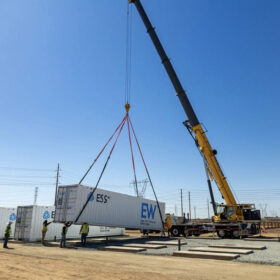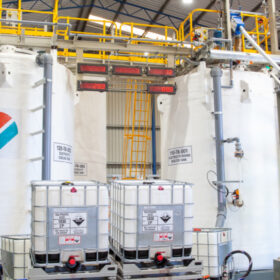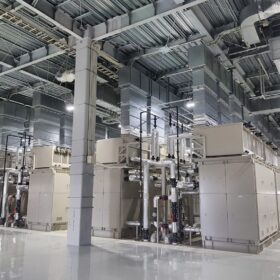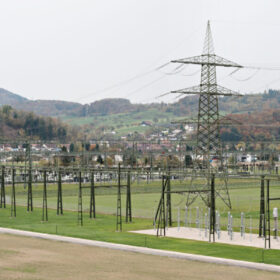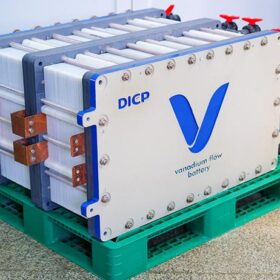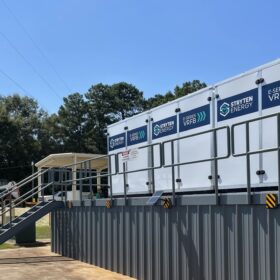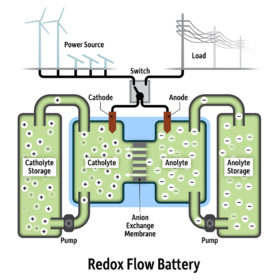Chinese scientists build polysulfide-iodide redox flow battery with 87.9% energy efficiency
Scientists in China designed a suplhuer-based redox flow battery with a peak power density of 95.7 mW cm2 and an average energy efficiency of 76.5% at 30 mA cm2 within 50 cycles.
Go with the flow (batteries)
There is a gap in the market for long-duration energy storage (LDES), according to US-based manufacturer ESS Inc. – one which can’t be plugged with lithium-ion chemistry. Hugh McDermott, of ESS Inc. tells pv magazine how he thinks iron flow batteries fit into the energy system of the future, as the company pursues global expansion.
World’s largest vanadium redox flow project completed
Dalian-headquartered Rongke Power has completed the construction of the 175 MW/700 MWh vanadium flow battery project in China, growing its global fleet of utility-scale projects to more than 2 GWh.
Australian-made vanadium flow battery project could offer storage cost of $166/MWh
Australian Vanadium Limited (AVL) has moved a vanadium flow battery (VFB) project to design phase with the aim of developing a modular, scalable, turnkey, utility-scale battery energy storage system (BESS).
China to host 1.6 GW vanadium flow battery manufacturing complex
The all-vanadium liquid flow industrial park project is taking shape in the Baotou city in the Inner Mongolia autonomous region of China, backed by a CNY 11.5 billion ($1.63 billion) investment. Meanwhile, China’s largest vanadium flow electrolyte base is planned in the city of Panzhihua, in the Sichuan province.
Switzerland to host world’s largest redox flow storage project
Flexbase plans to build a 500 MW redox flow storage project in Laufenburg in early 2025.
Australian redox flow battery manufacturer ramps up capacity
Allegro Energy, an Australian redox flow battery developer, aims to “rapidly accelerate” its manufacturing capacity after closing a AUD 17.5 million ($11.6 million) funding round that attracted major domestic and international investors.
Chinese researchers develop high power density vanadium flow battery stack
Researchers at the Dalian Institute of Chemical Physics (DICP) in China have developed a 70 kW-level vanadium flow battery stack. The newly designed stack comes in 40% below current 30 kW-level stacks in terms of costs, due to its volume power density of 130 kW/m3.
Stryten Energy vanadium redox flow battery on path to commercialization
Stryten Energy is planning to begin commercializing its vanadium redox flow batteries in January 2025. Meanwhile it has deployed a 20 kW/120 kWh pilot-sized version of the storage system at a facility operated by Snapping Shoals EMC, an electricity cooperative in Georgia, United States.
First AI-based control method for vanadium redox flow batteries
Australian researchers are proposing a novel, learning-based H∞ control method to enhance the performance of vanadium redox flow batteries in DC microgrids.

